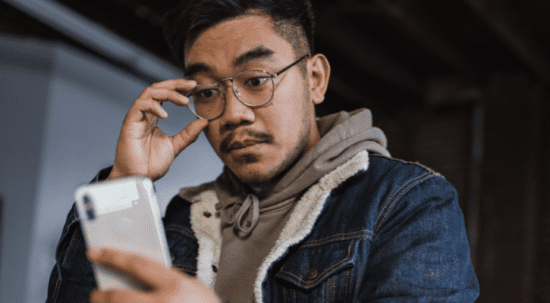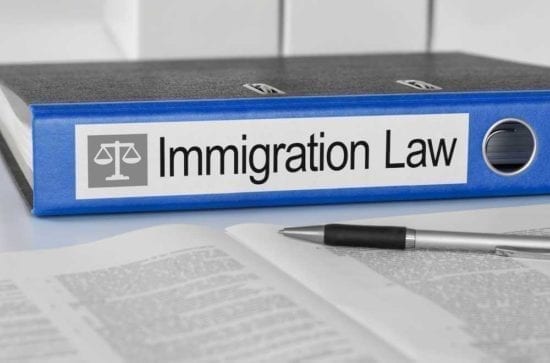Understanding identities
1 in 13 adults in the USA identify as LGBTQ+. This includes various sexual and gender identities:
- Lesbians: Women attracted emotionally, romantically, or sexually to other women.
- Gay: Usually describes men attracted to other men but can also refer to both males and females attracted to same-sex or same-gender partners.
- Bisexual: People attracted to both men and women.
- Transgender (trans): Individuals whose gender identity is different from the sex assigned at birth.
- Queer: Includes any sexual and gender identities other than straight or cisgender. Cisgender refers to someone who identifies as their assigned birth gender.
- Questioning: People exploring their sexual or gender identity.
- Plus (+): Represents additional sexual and gender identities. Examples include:
- Intersex: Individuals born with different sex traits and anatomical variations.
- Asexual: People who do not experience sexual attraction but may still engage in romantic relationships.
- Non-binary: People who do not exclusively identify as male or female. They may use pronouns like “they/them”.
- Pansexual: Individuals attracted to people of all gender identities.
It is important to recognize and respect each person’s identity. You can ask someone respectfully about their preferred name and pronouns. Learning more words and terms can help.
LGBTQ+ immigrants
1.3 million LGBTQ+ adult immigrants live in the USA, making up 3% of all immigrants. Many come to the U.S. for more rights and freedoms, to live openly, and to love freely.
LGBTQ+ immigrants can still face unique challenges, such as limited access to resources due to language barriers and sometimes lack of acceptance within their own communities.
LGBTQ+ rights
Everyone deserves to feel safe and respected regardless of sexual orientation or gender identity. If you are LGBTQ+, you have the same basic rights as anyone else in the United States.
While federal law offers some protections against discrimination based on sexual orientation or gender identity, state and local laws vary. Discrimination means treating someone unfairly because of who they are. In many states and cities, it is illegal to discriminate in the workplace, housing, and education. However, not all states have these protections. It is important to know the laws in your area.
Basic rights
- Healthcare: You have the right to access medical care. Even though you have this right, discrimination can still happen, especially for transgender people. Everyone has the right to emergency medical help, even if you are LGBTQ+ and undocumented. Find information and support.
- Workplace: Federal law protects against discrimination based on sexual orientation or gender identity in the workplace. Your employer cannot harass you or ask about your LGBTQ+ identity. Some states and some cities offer specific protections. If you are HIV-positive, you have the right to reasonable accommodations at work.
- Housing: Federal law protects against housing discrimination for LGBTQ+ people. Landlords cannot ask about your gender identity or sexual orientation and must respect your chosen name and pronouns.
- School: Public schools are federally required to ban discrimination against LGBTQ+ students and families. Students should be protected from harassment and bullying for expressing their gender identity. This includes threats, teasing, intimidation, and violence.
Learn more about immigrant rights.
Right to seek asylum in the USA
If you faced persecution in your home country for being LGBTQ+, you can ask for asylum in the United States. You must apply within one year of arriving in the USA, and you can include your spouse in your application. Asylum seekers often face complex immigration issues, making it important to seek legal help.
Rights in detention centers
LGBTQ+ immigrants in detention centers often face higher rates of abuse. Transgender immigrants are at high risk of sexual assault. You have basic rights in detention, including access to medical treatment and legal advice. If you are abused, you can report it to ICE headquarters at 855-448-6903 or file a complaint with CRCL.
State rights
Some states offer more rights to LGBTQ+ people than others. You can look at this map to see which states have better protections. Research specific areas within states for local protections and community support.
Same-sex marriage
You have the right to marry your same-sex partner. This is legal in all 50 states and Washington, D.C. The law protects your union and provides the same legal benefits that heterosexual couples have, such as:
- Social Security benefits
- Federal tax benefits
- Veteran and military benefits
- Federal employment benefits
- Medical benefits
Domestic partnership
In some states, you can file for a domestic partnership if you and your same-sex partner live together but are not married. This can help you get certain benefits, like joining your partner’s health insurance plan.
Family immigration
If you are a U.S. citizen or green card holder, you can petition for your spouse to join you in the USA. If you are a U.S. citizen, you can also apply for a fiancé visa to have your partner come to the U.S. to get married.
Learn more about the family immigration process.
Adopt and foster children
You have the right to adopt and foster children. Some states offer better protection against discrimination in this process than others.
Transgender document rights
You can legally change your name and gender on certain identity documents. This includes ID cards and other paperwork that reflects your gender identity. Depending on your state, you may also choose to change your name and sex on documents like your birth certificate. Learn about the process of updating your ID.
U.S. Citizenship and Immigration Services (USCIS) no longer accepts gender changes. They will now only list someone’s sex as either male or female.
Find help and community
Many organizations offer a variety of free services and support to LGBTQ+ people. If your rights have been violated, you can find help to report it.
Organization |
Free service |
Email [email protected] for help reporting discrimination |
|
Find LGBTQ+ health clinics by city and state |
|
Find LGBTQ+ centers |
|
Report discrimination at work |
|
Confidential legal information, assistance, and referrals |
|
Ask legal questions |
|
Find services for LGBTQ+ immigrants |
|
General legal information and resources |
|
Confidential peer support |
|
Find LGBTQ+ friendly healthcare |
|
Legal help through a form or helpline |
|
Legal services for low-income LGBTQ+ and HIV+ immigrants |
|
Multilingual information on coming out and family acceptance |
|
Legal help for trans people, including name and gender change services |
|
LGBTQ+ friendly health providers |
|
Peer support through in-person and virtual meetings, including for Asian American & Pacific Islander, Black/African American, and Latino communities |
|
Support for those in immigration detention center |
|
Emergency relocation and support programs |
|
Legal services to seek protection |
|
Legal and housing services in the Los Angeles area |
|
Suicide and crisis support for LGBTQ+ youth |
|
Legal help and immigration resources |
|
Peer support phone service |
If you are in a crisis, there are support hotlines you can call or text for help.
Celebrating LGBTQ+
Pride Month, or Pride, is in June. Pride is a celebration to recognize the LGBTQ+ community. During Pride, people celebrate LGBTQ+ rights, history, and achievements. Pride has many events like parades, festivals, and gatherings to build community and raise awareness.
Rainbow flags are common in the United States. The colorful flag is a symbol of LGBTQ+ pride. It is displayed during Pride Month and the rest of the year to show alliance with the community.
The information on this page comes from ACLU, ILRC, Rainbow Railroad, Human Rights Watch, and other trusted sources. We aim to offer easy to understand information that is updated regularly. This information is not legal advice.


